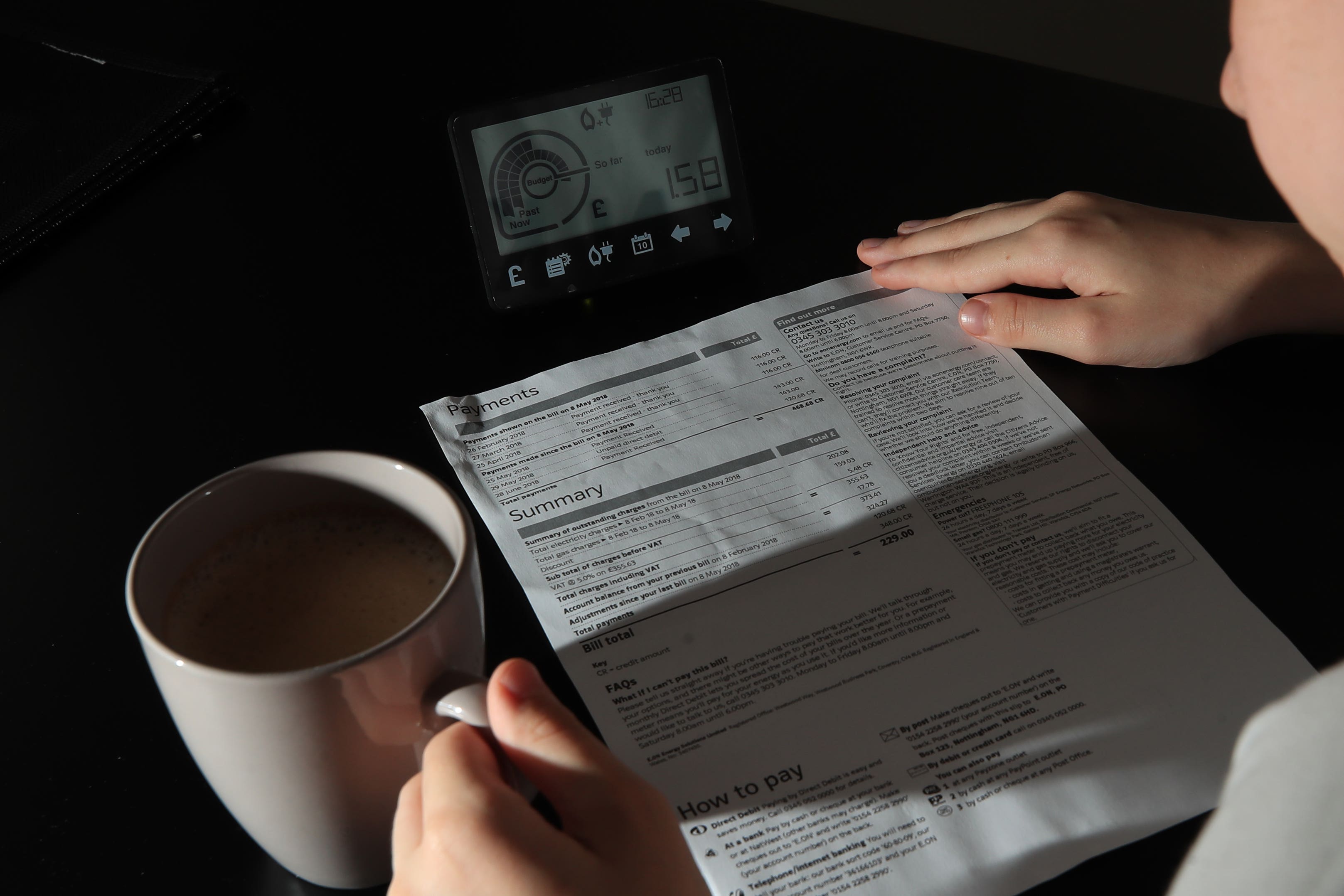Energy bills predicted to fall from July by nearly £450
Campaigners warned consumers are likely to feel little relief from Ofgem’s new price cap, with bills remaining well above pre-pandemic levels.

Your support helps us to tell the story
From reproductive rights to climate change to Big Tech, The Independent is on the ground when the story is developing. Whether it's investigating the financials of Elon Musk's pro-Trump PAC or producing our latest documentary, 'The A Word', which shines a light on the American women fighting for reproductive rights, we know how important it is to parse out the facts from the messaging.
At such a critical moment in US history, we need reporters on the ground. Your donation allows us to keep sending journalists to speak to both sides of the story.
The Independent is trusted by Americans across the entire political spectrum. And unlike many other quality news outlets, we choose not to lock Americans out of our reporting and analysis with paywalls. We believe quality journalism should be available to everyone, paid for by those who can afford it.
Your support makes all the difference.Ofgem is expected to lower household energy bills to an average of £2,053 a year from July to reflect tumbling wholesale prices, according to analysts.
The regulator will announce its latest energy price cap on Thursday as campaigners warned consumers are likely to feel little relief with bills remaining well above pre-pandemic levels.
Consultancy firm Cornwall Insight said households should also expect their energy bills to remain stubbornly high through the coming winter, at almost double the rates paid in 2020, and remain above pre-pandemic levels for the rest of the decade.
The Government’s temporary Energy Price Guarantee (EPG) has capped gas and electricity bills at an average of £2,500 for a typical household since October, lower than Ofgem’s price cap.
All households in England, Scotland and Wales also received £400 from the Government to offset soaring prices over the winter.
However, Ofgem’s cap is set to fall below the EPG – which will rise to £3,000 from July – meaning it will once again determine the amount firms can charge customers for their energy from July 1.
Cornwall Insight has predicted Ofgem’s cap will fall by more than £1,000 from £3,280 for the three months from April – when households were still protected by the Government scheme – to £2,053 from July to reflect the tumbling cost of gas in the global wholesale markets.
However, the typical household is likely to see its annual bill fall by about £450 – the difference between the Government’s current Energy Price Guarantee and Ofgem’s new price cap.
The price cap has rocketed from £1,162 a year for a typical household in August 2021 to its current level of £3,280, having briefly reached £4,279, with the pandemic and Russia’s war in Ukraine both pushing up wholesale prices.
The cap does not set the maximum a household will pay for their energy but limits the amount providers can charge them per unit of gas or electricity, so those who use more energy will pay more.
The standing charge – the roughly £300 paid each year by households just to access gas and electricity – is unlikely to fall.
Energy is regulated separately in Northern Ireland, where bills will be held at £1,950 per year for an average household.
Simon Cran-McGreehin, head of analysis at the Energy and Climate Intelligence Unit (ECIU), said: “Whilst the falling price cap is a relief for households, this gas crisis will linger, with wholesale price forecasts suggesting that the average household energy bill might not get below £1,700 a year for the rest of this decade – that’s around £600 (about 50%) above where it was before the gas crisis.
“If we don’t get on with insulating homes, installing heat pumps and building more renewables, gas demand will remain high, and that means bills will too.”
Energy Saving Trust chief executive Mike Thornton said: “The UK Government must not lose the acute sense of urgency needed to address the root causes of the energy and climate crises for the long-term while ensuring that proper support remains in place for those that need it now.
“Energy prices are still around twice as high as they were just over two years ago.
“Despite setting a target of 15% reduction in energy demand by 2030, the UK Government has not set out a plan about how it will be delivered.
“They need to drive forward the systemic changes required to minimise bills, cut carbon and increase energy security for the long term. We cannot afford to wait any longer for the urgent action required.”